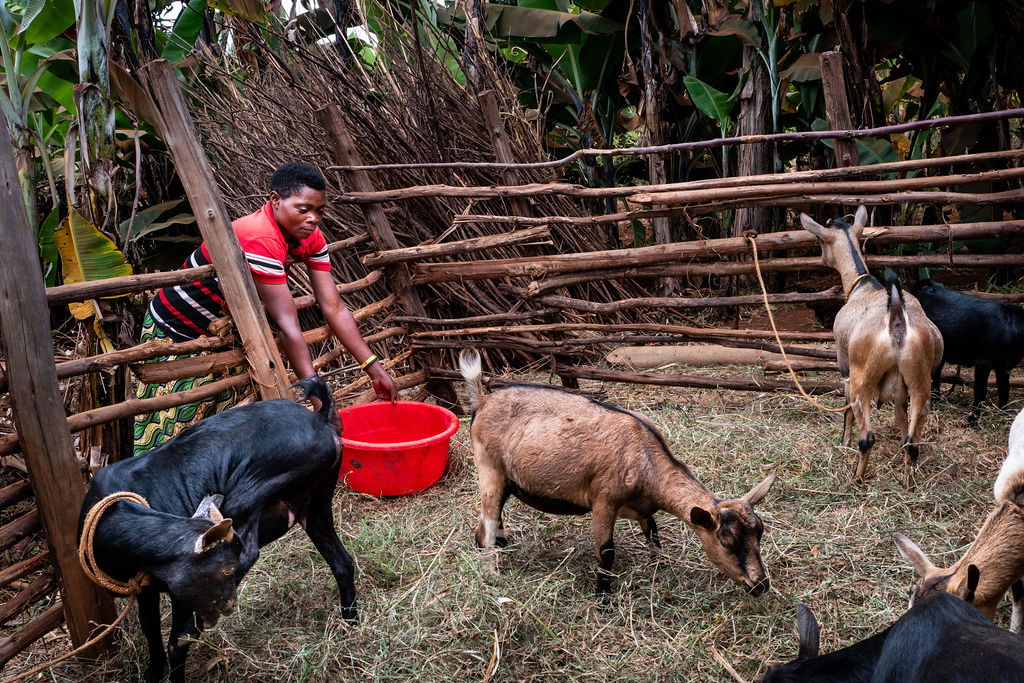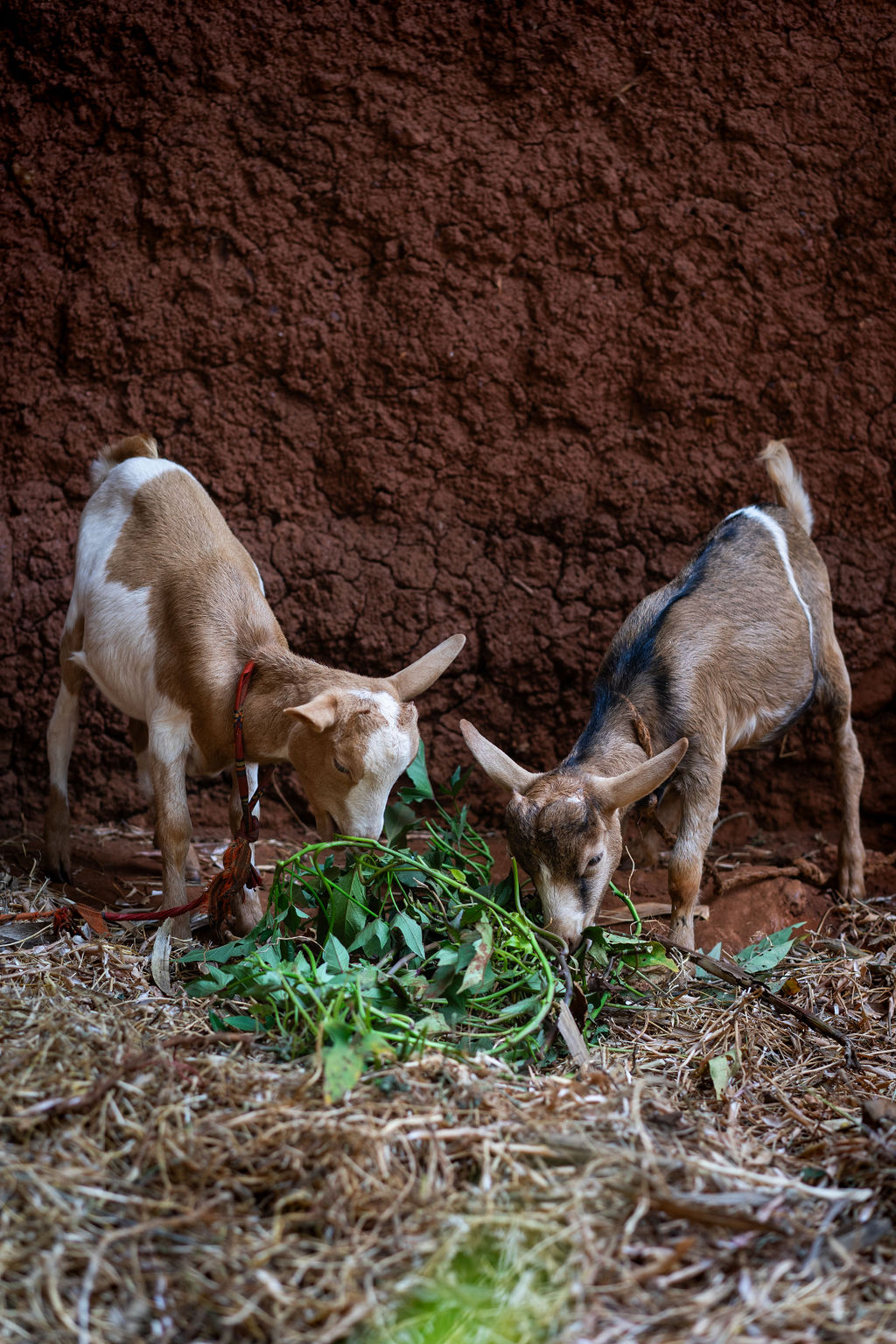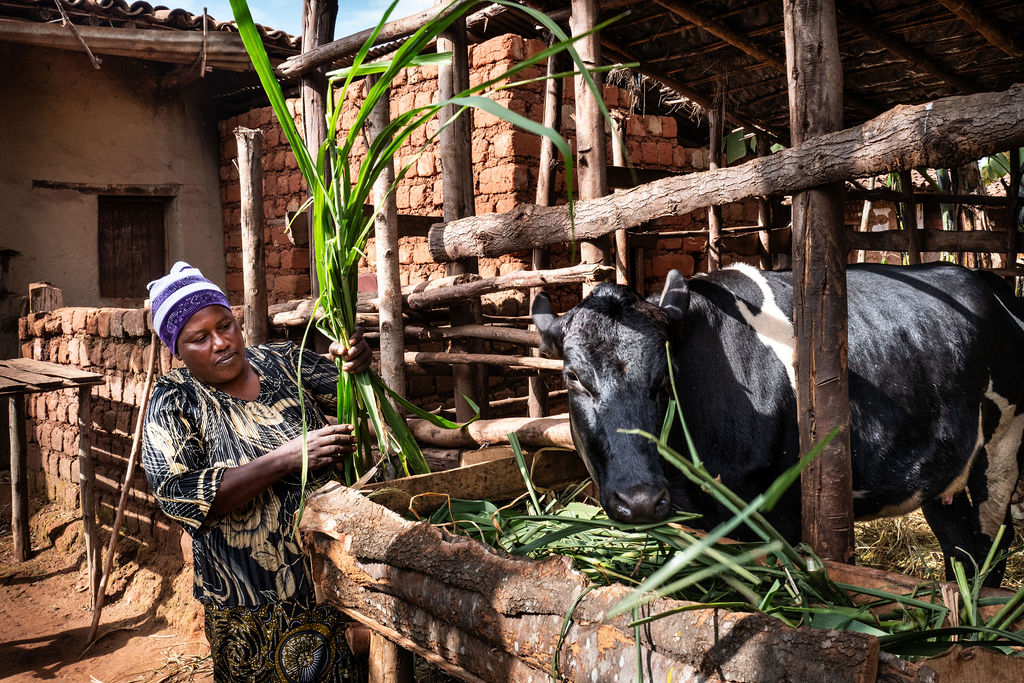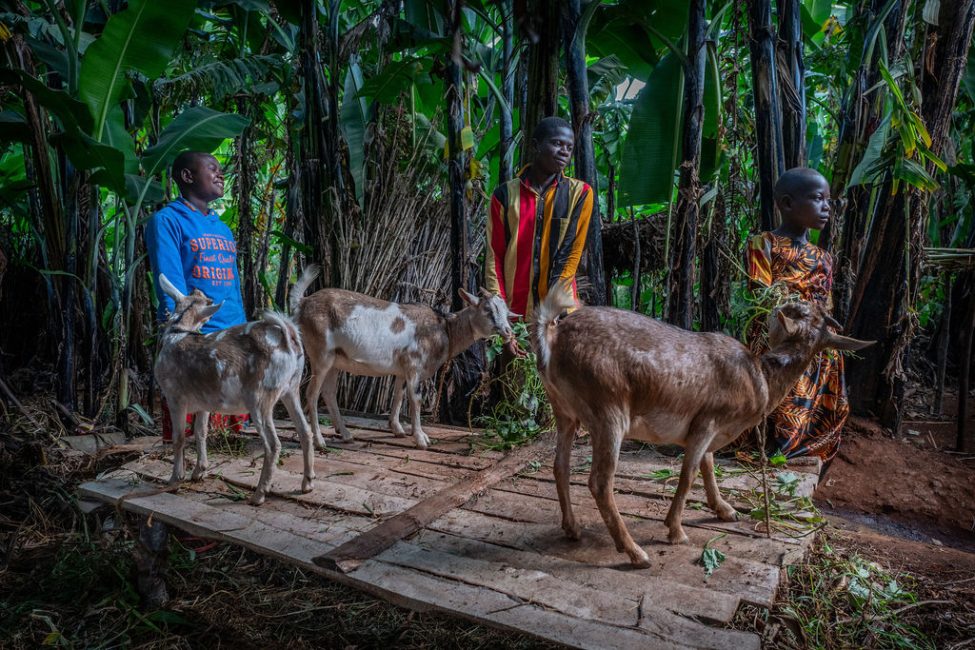You only need to travel a few kilometres out of Bujumbura to see that Burundi is an agricultural country. Agriculture offers a livelihood to nine out of ten people, or approximately 12 million Burundians. Early in the morning, you see them heading out to plough the fields or harvest their crops with muscle power alone. Very often, the land they work on does not belong to them. And even when it does, their yields are insufficient to live in dignity. So millions of Burundians work every day for a pittance: less than a euro a day on average, for six hours of hard labour.
Beneath Burundi’s greenery lurks a serious problem: tilling the land without respite has left the small country’s soil infertile. Livestock keeping is a promising solution to this challenge, because animal droppings provide fertiliser that is both effective, free and natural. But you still need the means to buy a few animals. Sadly, this dream is out of reach for many Burundians living in poverty.
Since 2014, Vétérinaires Sans Frontières Belgium and its local partner UCODE-AMR have been developing a holistic approach. This addresses different aspects of poverty while tackling the problem of infertile soils. Thanks to the goats and some material and technical support, agricultural yields have multiplied, enabling Burundian farmers to generate profitable income.
A holistic approach, ten years on: 3721 new starts

Our beneficiaries receive four goats and everything they need to help them thrive. Thanks to the manure they produce, harvests soon improve and incomes with them. © Loïc Delvaulx.
In ten years, we have distributed more than 14,000 goats to 3721 families. To select them, a series of vulnerability criteria are drawn up in agreement with the local community. So the lucky recipients often have similar characteristics: large families, single mothers, widows or women who have been abandoned by their husbands and have few resources.
The support base is the same for everyone: after taking training in livestock keeping, each family receives materials to build a goat shed, as well as seeds for fodder and a vegetable garden. Our facilitators also give advice on improving home hygiene by building a shower, toilets, a mechanical handwashing system and a drainer for the washing-up.
When everything is ready for their arrival, four goats are distributed to each family. Our animal health experts select them with care from the most suitable breeds, make sure they are in good health and vaccinate them before they are distributed. There are several reasons for choosing goats: one is that feeding them does not compete with the families’ nutritional needs or require a significant financial investment. In fact, they are happy to eat residues from the harvest, grass and leaves. To keep them healthy, we provide healthcare services for three months through our technicians and community animal health workers.
The snowball effect of the solidarity chain

The goats eat residues from the harvest, leaves and grass. That means vulnerable households can feed them at little cost, without jeopardising their own diets. © Loïc Delvaulx.
To empower the beneficiaries and compound the impact of our approach, we have set up a ‘solidarity chain’ principle. After receiving their goats, the selected families have a year and a half to ‘pay back’ two of them to another vulnerable family. Thanks to this system, an additional 1800 households have had the opportunity to get started in livestock keeping since 2014 as well.
The fact that the solidarity chain is widely accepted among the beneficiaries is surely because it is inspired by a local custom: in Burundi, the wealthiest families habitually give their less prosperous neighbours a few animals to look after. In exchange for caring for them, they are allowed to keep a young animal after returning the firstborn to the owner.
Goats to promote social mobility
Whatever their background story, everyone says the same thing: the arrival of the goats changes our beneficiaries’ lives. Harvests improve rapidly thanks to the use of manure, thus increasing the family’s income. The sale of a few goats also permits other investments in agriculture or livestock keeping, and a diversification of their income. For Marie-Rose Miburo (aged 56), a widow and mother of seven children, the big turning point was back in 2017: “It was an exceptional opportunity, because it allowed me to solve all my problems.” In a few months, her situation had improved so much that she met the conditions to benefit from other support such as a livestock keeping loan and poultry farming , which are reserved for the higher socio-economic classes: “I’m proud that all the support I have received has led somewhere. It has allowed me to keep my children in school for longer. I have one son who has finished his humanities degree and another who is in his second year of French at university.”

The goats she received five years ago have enabled Ménédore to buy herself a cow that has recently had a calf. After years of hardship, her income from agriculture and livestock keeping now permits her to send three of her children to university. © Loïc Delvaulx.
Children’s education is often the beneficiaries’ main concern, since most of them only have a primary school education. For Ménédore Nyabenda , who struggled for years to raise her seven children alone after her husband abandoned them, this is a great source of pride: “My income is sufficient to send my children to university: two of my daughters studied management and accounting, and my son is about to start higher studies in agronomy. I can pay their tuition fees and accommodation in Bujumbura without difficulty. If I hadn’t had my goats, that would have been impossible.” Barely five years after receiving our support, Ménédore can sleep soundly at last. With a few goats, she has achieved her goal of giving her children a better life.
These activities were set up by Vétérinaires Sans Frontières Belgium and its local partner UCODE-AMR in the provinces of Ngozi and Kayanza, with the support of the Belgian government (Directorate-General for Development Cooperation and Humanitarian Aid).

